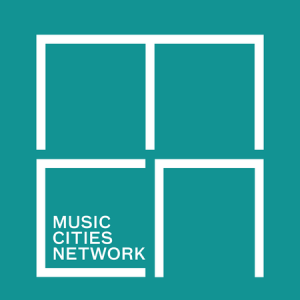03/04/2017
by R. Kuchar
Comments Off on Music Cities Edited Collection – Call for Chapter Proposals
From the physical spaces in which music activity takes place, to the mythologizing of city-specific music scenes, the city has long played a vital role in the development and sustaining of music scenes. In recent years there has been a concerted effort to cultivate and nurture musical activity as a key driver for urban economic development and for city-specific tourism. Cities around the world are now looking to cultivate and support music activity in a bid to activate new forms of cultural and creative identity. This has occurred off the back of similar creative and cultural cities movements, and works to move beyond the mythologizing of particular cities music scenes in order to legitimise music as a place-specific cultural output which contributes significantly to local identities as well as to local economies. To this end, music is positioned as making a vital contribution to the cultural and economic fabric of a city, and is viewed as a critical way through which both locals and tourists can gauge, and engage with, a city’s cultural and creative identities. In order to foster this, an array of heritage and planning accords, live music regulation, tourism initiatives and even tax exemptions have been put in place, and an array of industry and government developed place-specific reports and activation ‘how-to’ manuals have been developed in order to understand the scope of place-specific music activity and the ways in which it can be cultivated and supported.
With a particular focus on heritage, planning, tourism and regulatory measures, we invite rigorous place-specific case studies exploring, both empirically and conceptually, the ways in which the music cities movement has emerged globally, yet is grounded in a variety of local urban, cultural and political contexts.
Proposals for chapters should consist of a title and an abstract of no more than 250 words, along with author name(s), bio (of no more than 150 words) affiliation, and e-mail address. It is envisage that published chapters will be 6,500 – 7,000 words in length. We have a very enthusiastic academic publisher interested in pursuing this collection with us.
Proposals should be e-mailed to musiccitiesbook@gmail.com by May 15, 2017.
Editors:
Dr. Christina Ballico (Queensland Conservatorium Research Centre, Griffith University)
Dr. Allan Watson (Department of Geography, Loughborough University)
More information: Website
P.S.: For getting some inspiration have a look on our Music City Volume published in 2014.
 69) first. Published in 1852 in his collection ‚Evenings with the Orchestra‘ Berlioz envisions a future town, situated on the slopes of Harz in Germany, in which the inhabitants devote themselves exclusively to one single activity – making music. The ideas of this aesthetic utopia, promoting music education, acoustic research and the building of monumental music shrines are now closer to realisation than Berlioz could imagine in his wildest dreams. More…
69) first. Published in 1852 in his collection ‚Evenings with the Orchestra‘ Berlioz envisions a future town, situated on the slopes of Harz in Germany, in which the inhabitants devote themselves exclusively to one single activity – making music. The ideas of this aesthetic utopia, promoting music education, acoustic research and the building of monumental music shrines are now closer to realisation than Berlioz could imagine in his wildest dreams. More…


 Music Cities Network is a new public/private network dedicated to improving communication and cooperation, sharing research and knowledge, exploring policy and advocacy, and networking for policy makers, city leaders and all other music city stakeholders. The network is aimed at making cities wealthier, healthier, livable and more international through music.
Music Cities Network is a new public/private network dedicated to improving communication and cooperation, sharing research and knowledge, exploring policy and advocacy, and networking for policy makers, city leaders and all other music city stakeholders. The network is aimed at making cities wealthier, healthier, livable and more international through music.
You must be logged in to post a comment.